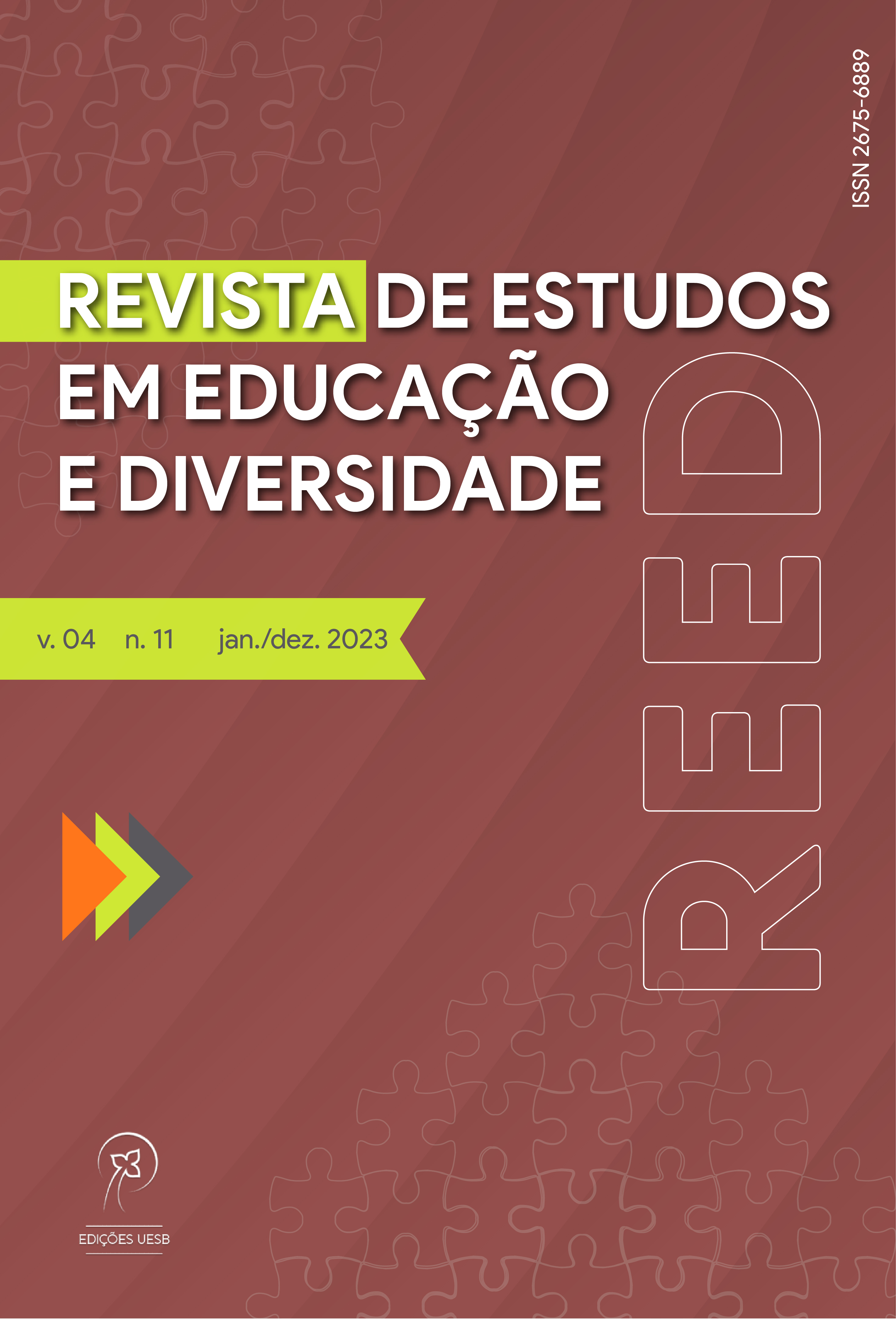Forensic chemistry: a proposal for the development of didactic workshops for high school.
DOI:
https://doi.org/10.22481/reed.v4i11.14012Keywords:
forensic chemistry, workshops, themeAbstract
This work is a qualitative research applied to students in the 2nd and 3rd years of high school at the Military Police School (CPM) Professor Poeta Luís Neves Cotrim in the city of Jequié-BA, conducted by CAPES scholarship recipients included in the Institutional Program for Teaching Initiation Scholarships (PIBID) of the Chemistry Teaching degree at the State University of Southwest Bahia-UESB. This article was developed after the implementation of activities prepared by PIBID scholarship recipients on forensic chemistry and some techniques developed by experts in their workplace. The realization of these workshops allowed the application of a survey questionnaire with 9 (nine) open and closed-ended questions, which aimed to analyze how topics related to forensic chemistry contributed to students' learning during high school. Thus, after the completion of the workshops, which were divided into 3 (three) moments, this questionnaire was applied to certify what knowledge students were able to acquire during the activities, concluding that forensic chemistry is an excellent proposal for didactic workshops. From the analysis of the questionnaire applied to students, the positive aspects of the addressed theme can be verified. Forensic chemistry has become an assisting tool to contextualize the contents that are frequently seen in the classroom. Furthermore, the encouragement it provides favors the understanding of recurrent situations that can be discussed during the course's content.
Downloads
References
Bourdieu, P. O poder simbólico. Lisboa: Difel, 1989.
FARIAS, R. F. Introdução à Química Forense. 3. ed. Revisada. Campinas: Átomo, 2010
MIRANDA, A. C. et al. “Química a favor da justiça”: A contextualização do ensino de Química a partir de uma abordagem forense. In: ENCONTRO DE DEBATES SOBRE O ENSINO DE QUÍMICA, 33., 2013, Ijuí, RS. Anais [...]. Ijuí, RS: UNIJUÍ, 2013. p. 1-8.
MARCELINO, J. et al. Perfumes e essências: a utilização de um vídeo na abordagem das funções orgânicas. Química Nova na Escola, v. 19, n. 1, p. 15-18, 2004.
MARCONDES, M. E. R. Proposições metodológicas para o ensino de Química: oficinas temáticas para a aprendizagem da ciência e o desenvolvimento da cidadania. Revista em Extensão, v. 7, n. 1, 2008.
NUNES, A. S.; ADORNI, D. S. O ensino de química nas escolas da rede pública de ensino fundamental e médio do município de Itapetinga-BA: O olhar dos alunos. In: ENCONTRO DIALÓGICO TRANSDISCIPLINAR - ENDITRANS, 2010, Vitória da Conquista, BA. Anais [...]. v. 86. Vitória da Conquista, BA: UESB, 2010. p. 1-7.
SEBASTIANY, A. P.; PIZZATO, M. C.; DEL PINO, J. C.; SALGADO, T.D.M. A utilização da Ciência Forense e da Investigação Criminal como estratégia didática na compreensão de conceitos científicos. Educación química, v. 24, n. 1, p. 49-56, 2013.
VYGOTSKY, Lev Semenovitch. A formação social da mente. 4. ed. São Paulo: Martins, 1998.
Downloads
Published
How to Cite
Issue
Section
License
Copyright (c) 2023 Revista de Estudos em Educação e Diversidade - REED

This work is licensed under a Creative Commons Attribution 4.0 International License.
You are free to:
Share - copy and redistribute the material in any medium or format; Adapt - remix, transform, and build from the material for any purpose, even commercially. This license is acceptable for Free Cultural Works. The licensor cannot revoke these freedoms as long as you follow the terms of the license.
Under the following terms:
Attribution - You must appropriately give credit, provide a link to the license, and indicate if any changes have been made. You may do so in any reasonable way, but not in a way that suggests that you or your use is endorsed by the licensor.
There are no additional restrictions - You cannot apply legal terms or technological measures that legally restrict others to make any use permitted by the license.






